Chayote (Sechium edule) is a unique vegetable that belongs to the gourd family, commonly found in tropical and subtropical regions. Also known as vegetable pear, chayote is renowned for its delicate flavor, crisp texture, and numerous health benefits. This article aims to delve into the nutritional composition of chayote and highlight its potential positive impact on human health, supported by scientific research.
Nutritional Profile
Chayote is a low-calorie vegetable packed with essential nutrients. It is an excellent source of dietary fiber, providing about 7 grams of fiber per 100 grams. The vegetable is also rich in vitamins and minerals such as vitamin C, vitamin K, folate, potassium, and manganese. Moreover, chayote contains antioxidant compounds like flavonoids and carotenoids, which play a vital role in reducing oxidative stress and preventing chronic diseases (https://fdc.nal.usda.gov/fdc-app.html#/food-details/170402/nutrients).
Digestive Health
The high fiber content in chayote contributes to improved digestion and bowel regularity. Scientific studies have shown that dietary fiber promotes healthy bowel movements, prevents constipation, and supports a healthy gut microbiota. Moreover, chayote’s fiber content aids in maintaining a healthy weight by promoting satiety and reducing calorie intake.
Furthermore, chayote contains specific compounds such as pectin, which acts as a prebiotic, nourishing beneficial bacteria in the gut. These friendly bacteria play a crucial role in breaking down food particles, synthesizing vitamins, and enhancing nutrient absorption. By fostering a healthy gut microbiota, chayote contributes to overall digestive wellness and supports immune function.
In addition to its fiber and prebiotic properties, chayote is also rich in antioxidants like vitamin C and flavonoids. These antioxidants help combat oxidative stress and inflammation in the digestive system, reducing the risk of gastrointestinal disorders such as inflammatory bowel disease (IBD) and colorectal cancer. Incorporating chayote into your diet not only promotes digestive regularity but also provides protective effects for long-term gastrointestinal health.
(Cummings, J. H., et al. (2019). Dietary fiber, the microbiome, and chronic diseases: Deciphering the relationship. Nutrients, 11(5), 1-21)
 Cardiovascular Health
Cardiovascular Health
Consuming chayote may have positive effects on cardiovascular health. Research suggests that chayote extracts possess hypolipidemic and anti-inflammatory properties, potentially lowering cholesterol levels and reducing the risk of heart disease. Additionally, the potassium content in chayote helps regulate blood pressure levels, promoting cardiovascular health.
Moreover, chayote stands out for its rich antioxidant profile, which can play a crucial role in maintaining cardiovascular well-being. Antioxidants help combat oxidative stress, a key factor in the development of atherosclerosis and other cardiovascular diseases. The presence of essential vitamins such as vitamin C, along with flavonoids and carotenoids in chayote, contributes to its robust antioxidant properties, further safeguarding the cardiovascular system.
Moreover, chayote’s unique combination of nutrients, including vitamins B6, folate, and magnesium, supports proper homocysteine metabolism, a factor associated with reduced risk of cardiovascular events such as heart attacks and strokes. This fruit’s low-calorie content and absence of cholesterol make it an excellent choice for individuals looking to manage their weight and cholesterol levels, thus reducing the burden on the cardiovascular system.
(Roldán-Marín, E., et al. (2014). Hypolipidemic and antioxidant effects of a chayote (Sechium edule) fruit extract in diet-induced hypercholesterolemic rats. Food Research International, 55, 362-369)
 Bone Health
Bone Health
Chayote contains essential minerals like manganese and vitamin K, which are crucial for maintaining bone health. Manganese plays a role in bone formation, while vitamin K is involved in calcium metabolism and bone mineralization. Adequate intake of these nutrients may contribute to the prevention of osteoporosis and fractures.
Furthermore, chayote is a rich source of other essential nutrients like potassium, magnesium, and folate, which contribute to overall bone health. Potassium is known for its role in reducing the loss of calcium through urine, thus preserving bone density. Magnesium aids in the absorption of calcium and plays a vital role in bone formation. Folate, on the other hand, helps in regulating homocysteine levels, which when elevated, can negatively impact bone health.
Moreover, chayote stands out for its low oxalate content, making it an ideal choice for individuals prone to kidney stones. Oxalates, found in certain foods, can bind with calcium and form crystals, potentially contributing to kidney stone formation. By opting for chayote as part of a balanced diet, individuals can mitigate this risk while still benefiting from its bone-strengthening properties.
(Booth, S. L., et al. (2000). Vitamin K: A practical guide to the dietary management of patients on warfarin. Nutrition Reviews, 58(9), 312-317)
 Antioxidant and Anti-inflammatory Properties
Antioxidant and Anti-inflammatory Properties
Chayote is rich in antioxidants, including flavonoids and carotenoids, which help protect the body against oxidative stress and inflammation. These compounds scavenge free radicals, reducing cellular damage and the risk of chronic diseases such as cancer, cardiovascular disease, and neurodegenerative disorders.
In addition to its rich antioxidant content, chayote possesses unique qualities that contribute to its potent antioxidant and anti-inflammatory properties. One distinctive feature is its high concentration of vitamin C, an essential water-soluble antioxidant known for its ability to neutralize free radicals. Vitamin C not only aids in the prevention of oxidative stress but also supports the immune system and promotes collagen synthesis for healthy skin.
Furthermore, chayote is a valuable source of various phytochemicals, such as quercetin and rutin, which exhibit anti-inflammatory effects. These compounds play a crucial role in modulating immune responses and reducing inflammation at the cellular level. Chayote’s combination of antioxidants and anti-inflammatory phytochemicals makes it a promising dietary component for those seeking to mitigate the risk of inflammatory conditions and promote overall health.
Moreover, the fiber content in chayote contributes to its anti-inflammatory effects by supporting gut health. A healthy gut microbiota is increasingly recognized for its role in regulating inflammation throughout the body. The soluble fiber in chayote acts as a prebiotic, nourishing beneficial gut bacteria and promoting a balanced microbial environment. This, in turn, can help manage inflammation and contribute to the overall well-being of the digestive system.
In conclusion, chayote’s remarkable antioxidant and anti-inflammatory properties stem from its diverse array of bioactive compounds, including flavonoids, carotenoids, vitamin C, and phytochemicals. Embracing chayote as part of a balanced diet may offer multifaceted benefits, ranging from cellular protection against oxidative stress to the modulation of inflammatory responses, ultimately supporting long-term health and wellness.
(Pham-Huy, L. A., et al. (2008). Free radicals, antioxidants in disease and health. International Journal of Biomedical Science, 4(2), 89-96)
 Diabetes Management
Diabetes Management
Some studies suggest that chayote extracts may exhibit antidiabetic properties. Animal studies have shown that chayote extracts can reduce blood glucose levels and enhance insulin sensitivity.
Moreover, chayote is a nutrient-rich vegetable that has gained attention for its potential role in diabetes management. The high fiber content in chayote is believed to contribute to its ability to regulate blood sugar levels. Dietary fiber helps slow down the absorption of glucose, preventing rapid spikes in blood sugar after meals. Additionally, chayote is a low-calorie food, making it a suitable choice for individuals aiming to manage their weight, a crucial aspect of diabetes care.
Incorporating chayote into a balanced diet may also provide other health benefits for individuals with diabetes. Chayote is a good source of essential vitamins and minerals, including vitamin C, potassium, and folate. These nutrients play a vital role in overall well-being and can contribute to the prevention of complications associated with diabetes, such as cardiovascular issues. However, it’s essential for individuals with diabetes to monitor their carbohydrate intake, even from low-calorie vegetables like chayote, to maintain optimal blood sugar control.
While promising, the current body of research on chayote and diabetes management is still in its early stages. More clinical studies involving human subjects are necessary to establish specific recommendations and dosage guidelines. Individuals with diabetes should consult their healthcare providers before making significant changes to their diet or incorporating new foods into their diabetes management plan. Despite the potential benefits, chayote should be part of a comprehensive approach to diabetes care that includes a well-balanced diet, regular physical activity, and consistent medical monitoring.
(Guzmán-Pérez, A. S., et al. (2020). Medicinal and nutritional potential of Sechium edule (Jacq.) Sw.: A review. Plants, 9(2), 1-23)
 Skin Health
Skin Health
Chayote contains various nutrients and antioxidants that can benefit skin health. Vitamin C, present in chayote, plays a crucial role in collagen synthesis, which helps maintain skin elasticity and promotes wound healing . Additionally, the antioxidant compounds found in chayote may help protect the skin from damage caused by free radicals, reducing the signs of aging and promoting a healthy complexion.
Furthermore, chayote contains significant amounts of vitamin E, which is known for its moisturizing properties and ability to support skin barrier function. This vitamin works in tandem with vitamin C to protect the skin from oxidative stress and maintain its overall health. Moreover, chayote is a rich source of zinc, an essential mineral that plays a crucial role in regulating sebum production. By balancing oil levels on the skin, zinc helps prevent acne breakouts and promotes a clear complexion.
Moreover, the high water content of chayote contributes to its hydrating properties, keeping the skin supple and preventing dryness. The presence of various phytonutrients such as flavonoids and carotenoids further enhances chayote’s ability to nourish the skin from within. These compounds not only provide antioxidant protection but also possess anti-inflammatory properties, which can help soothe irritated skin conditions like eczema and dermatitis. Overall, incorporating chayote into your diet can be a beneficial addition to your skincare routine, promoting radiant and healthy-looking skin.
(Pappas, A., et al. (2016). Role of antioxidants in prevention and treatment of dermatological diseases. Antioxidants, 5(4), 1-18)
Weight Management
Incorporating chayote into a weight management plan can be beneficial due to its low calorie and high fiber content. The high fiber content in chayote promotes feelings of fullness, reducing the likelihood of overeating and aiding in weight control. Moreover, its low-calorie nature allows individuals to enjoy a substantial portion of chayote without consuming excess calories.
Furthermore, chayote is a versatile ingredient that can be incorporated into various dishes, adding bulk and texture without significantly increasing calorie intake. Its mild flavor allows it to complement a wide range of flavors, making it an ideal addition to salads, stir-fries, soups, and stews. By substituting high-calorie ingredients with chayote, individuals can create satisfying meals that support their weight management goals while still enjoying delicious and nutritious food options.
Additionally, chayote is rich in essential nutrients such as vitamin C, vitamin K, potassium, and folate, which are important for overall health and well-being. These nutrients play crucial roles in various bodily functions, including immune function, bone health, and cardiovascular health. By incorporating chayote into a balanced diet, individuals can ensure they are meeting their nutritional needs while managing their weight effectively.
Furthermore, the hydration properties of chayote, which is composed of over 90% water, contribute to a feeling of satiety and can help individuals stay hydrated, which is important for overall health and weight management. Therefore, including chayote in a weight management plan not only supports calorie control and feelings of fullness but also provides essential nutrients for overall health and well-being.
(Slavin, J. L. (2005). Dietary fiber and body weight. Nutrition, 21(3), 411-418)
Cancer Prevention
Research suggests that the bioactive compounds in chayote may possess anti-cancer properties. Flavonoids, present in chayote, have been shown to exhibit anti-tumor effects and help inhibit the growth of cancer cells. Furthermore, chayote’s antioxidant properties play a vital role in neutralizing free radicals that can damage DNA and potentially lead to the development of cancer.
Moreover, chayote stands out for its rich content of vitamins and minerals, including vitamin C, vitamin E, and zinc, which are crucial for bolstering the body’s immune system. A robust immune response is essential for identifying and eliminating aberrant cells, thus reducing the risk of cancer initiation and progression. Additionally, chayote is a low-calorie vegetable and an excellent source of dietary fiber. Its high fiber content aids in maintaining optimal digestive health by promoting regular bowel movements and facilitating the removal of toxins from the body, which may contribute to lowering the risk of colorectal cancer.
Furthermore, chayote possesses unique phytochemicals such as cucurbitacins, which have demonstrated promising anti-cancer effects in preclinical studies. These compounds exert their anti-cancer properties by modulating various cellular pathways involved in cancer development, including cell proliferation, apoptosis, and metastasis. Additionally, chayote’s versatility in culinary applications makes it an easily incorporable component in a balanced diet, further enhancing its potential role in cancer prevention strategies.
Despite these promising attributes, it’s essential to emphasize the importance of consuming chayote as part of a diverse and balanced diet, along with other cancer-preventive practices such as regular physical activity and avoidance of tobacco and excessive alcohol consumption. Continued research into the specific mechanisms of chayote’s anti-cancer properties will provide valuable insights for its potential utilization in cancer prevention and treatment regimens.
(Valko, M., et al. (2007). Free radicals and antioxidants in normal physiological functions and human disease. The International Journal of Biochemistry & Cell Biology, 39(1), 44-84)
Digestive Enzyme Activation
Chayote contains enzymes such as amylase and lipase, which aid in the digestion of carbohydrates and fats, respectively. These enzymes can support the efficient breakdown and absorption of nutrients, promoting overall digestive health.
Furthermore, chayote stands out for its unique combination of enzymes and other bioactive compounds that contribute to its digestive benefits. Apart from amylase and lipase, chayote also contains protease, an enzyme crucial for breaking down proteins into amino acids, facilitating their absorption in the digestive tract. This comprehensive enzyme profile makes chayote a versatile addition to a balanced diet, especially for individuals seeking improved digestion and nutrient assimilation.
(Gupta, R. K., et al. (2010). Chayote (Sechium edule) – A vegetable cum fruit and its medicinal uses. Journal of Medicinal Plants Research, 4(19), 2021-2026)
Immune System Support
Chayote’s rich nutrient profile, including vitamin C and other antioxidants, can support a healthy immune system. Vitamin C is known for its immune-boosting properties, as it helps stimulate the production of white blood cells and enhances their ability to fight off infections. The antioxidant compounds found in chayote also play a role in protecting immune cells from damage caused by free radicals, promoting optimal immune function.
Furthermore, chayote contains unique bioactive compounds like saponins and flavonoids, which possess anti-inflammatory and antimicrobial properties. These compounds not only help in reducing inflammation within the body but also aid in combating pathogens that could compromise the immune system. Additionally, chayote is a good source of zinc, an essential mineral known for its role in immune function. Zinc is involved in various aspects of immune response, including the development and function of immune cells, making it crucial for maintaining a robust immune system.
Moreover, chayote is a versatile vegetable that can be easily incorporated into a balanced diet, providing essential nutrients that support overall health and well-being. Its high fiber content aids in digestion and gut health, which is closely linked to immune function. By promoting a healthy gut microbiota, chayote indirectly contributes to a stronger immune system.
(Carr, A. C., & Maggini, S. (2017). Vitamin C and immune function. Nutrients, 9(11), 1-25)
Eye Health
Chayote contains several nutrients, including vitamin C, vitamin A, and antioxidants like lutein and zeaxanthin, which are beneficial for eye health. Vitamin C and vitamin A play critical roles in maintaining the health of the eyes, while lutein and zeaxanthin help protect against age-related macular degeneration and cataracts. Regular consumption of chayote, as part of a balanced diet, can contribute to the maintenance of healthy vision.
(Moeller, S. M., et al. (2008). Associations between age-related nuclear cataract and lutein and zeaxanthin in the diet and serum)
The nutritional values for 100 grams of Chayote
- Calories: 19 kcal
- Carbohydrates: 4.51 g
- Sugars: 1.73 g
- Dietary Fiber: 1.7 g
- Protein: 0.81 g
- Fat: 0.13 g
- Saturated Fat: 0.04 g
- Monounsaturated Fat: 0.02 g
- Polyunsaturated Fat: 0.03 g
- Cholesterol: 0 mg
- Sodium: 2 mg
- Potassium: 125 mg
- Vitamin C: 7.7 mg
- Vitamin B6 (Pyridoxine): 0.038 mg
- Folate (Vitamin B9): 22 µg
- Vitamin K: 4.1 µg
- Calcium: 17 mg
- Iron: 0.34 mg
- Magnesium: 12 mg
- Phosphorus: 8 mg
- Zinc: 0.17 mg
Keep in mind that nutritional values may slightly vary depending on the source and freshness of the chayote.
Conclusion
Chayote, with its impressive nutritional profile and potential health benefits, is a valuable addition to a balanced diet. Its high fiber content supports digestive health, while its antioxidants and anti-inflammatory properties help combat chronic diseases. Furthermore, chayote contributes to cardiovascular health, bone strength, and potentially plays a role in diabetes management. Incorporating chayote into your meals can offer a flavorful way to boost your overall well-being.
Whether you’re interested in trying stuffed chayote with vegetables and cheese, a refreshing and crunchy chayote salad, or perhaps a delicious stir-fry with chayote and other vegetables, you’ll find inspiration and detailed instructions to create flavorful dishes.
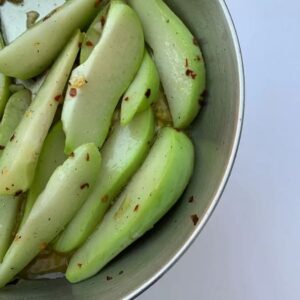 If you’re looking for a unique and flavorful side dish to complement your meal, you’ve come to the right place. This recipe features chayote squash, a versatile and nutritious vegetable that adds a delightful twist to any dining experience. With its mild flavor and crisp texture, chayote squash pairs beautifully with a medley of seasonings and aromatics in this simple yet satisfying dish. Whether you’re a seasoned chef or a home cook looking to expand your culinary repertoire, this Chayote Squash Side Dish is sure to impress. Let’s dive in and discover how to create this delicious accompaniment!
If you’re looking for a unique and flavorful side dish to complement your meal, you’ve come to the right place. This recipe features chayote squash, a versatile and nutritious vegetable that adds a delightful twist to any dining experience. With its mild flavor and crisp texture, chayote squash pairs beautifully with a medley of seasonings and aromatics in this simple yet satisfying dish. Whether you’re a seasoned chef or a home cook looking to expand your culinary repertoire, this Chayote Squash Side Dish is sure to impress. Let’s dive in and discover how to create this delicious accompaniment!
Contraindications
While chayote is generally considered safe and well-tolerated by most individuals, there are a few considerations and potential contraindications to keep in mind:
Allergies:
Some individuals may have allergies to chayote or other members of the gourd family. If you have a known allergy to gourds, such as cucumber or melon, it is advisable to avoid chayote or consult with a healthcare professional before consuming it.
Oxalate sensitivity:
Chayote contains oxalates, which can contribute to the formation of kidney stones in susceptible individuals. If you have a history of kidney stones or have been advised to follow a low-oxalate diet, it is advisable to limit your intake of chayote or seek guidance from a healthcare professional.
Diabetes medication:
If you are taking medication for diabetes, it is important to monitor your blood sugar levels closely if incorporating chayote into your diet. Chayote may have hypoglycemic effects and could potentially interact with diabetes medications, leading to low blood sugar levels. Consult with your healthcare professional to determine the most appropriate approach for incorporating chayote into your diabetes management plan.
Pregnancy and breastfeeding:
While chayote is generally considered safe during pregnancy and breastfeeding, it is always best to consult with a healthcare professional before making any significant changes to your diet during these periods.
As with any dietary changes, it is advisable to consume chayote in moderation as part of a balanced diet. If you have specific health concerns or medical conditions, it is recommended to seek advice from a healthcare professional before incorporating chayote into your regular diet.
Fascinating Facts About Chayote
Natural Cleanser for the Skin:
Beyond its culinary uses, chayote has surprising skincare benefits. The juice extracted from chayote fruit and leaves is used in some traditional practices as a natural cleanser for the skin, believed to help reduce blemishes and promote a healthy complexion.
Natural Source of Dye:
Chayote has been historically used as a natural source of dye in certain cultures. The leaves and fruits contain compounds that can be extracted to produce a yellow or green dye, which has been used to color textiles and even food items in some traditional practices.
Symbol of Love and Fertility:
In certain folklore and cultural beliefs, chayote is considered a symbol of love and fertility. It is believed that keeping a chayote fruit in the bedroom or home can attract love and promote fertility for couples seeking to start a family.
A Natural Insect Repellent:
Chayote vines and leaves have natural insect-repellent properties. Some gardeners use chayote plants as a natural pest control method in their gardens, as the presence of chayote vines can deter certain pests and insects from damaging other plants in the vicinity.
Historical Currency:
In ancient Mesoamerican cultures, chayote was sometimes used as a form of currency or barter. It held value as a commodity and was exchanged for other goods and services in local markets and trade networks.
Chayote Jewelry:
In some regions, particularly in Central and South America, chayote seeds have been used creatively to make jewelry. The seeds are dried, polished, and strung together to create necklaces, bracelets, and other accessories with a unique natural aesthetic.
Cultural Symbolism in Art and Literature:
Chayote has been depicted symbolically in various forms of art and literature. In some indigenous cultures, chayote is represented in traditional art forms such as pottery, textiles, and paintings, often symbolizing fertility, abundance, and the cycle of life.
Chayote Wine:
Chayote can be fermented to produce a unique alcoholic beverage known as chayote wine. This unconventional wine is made by fermenting the juice extracted from chayote fruits, resulting in a light and refreshing drink with subtle fruity notes.
Used in Traditional Medicine for Diabetes:
In certain traditional medicine practices, chayote is believed to have medicinal properties that can help manage diabetes. The fruit is sometimes consumed raw or juiced as part of dietary regimens aimed at regulating blood sugar levels.
A Favorite of Wildlife:
Chayote plants are not only cherished by humans but also favored by various wildlife species. Birds, squirrels, and other animals are known to feast on the fruits and seeds of chayote vines, contributing to the dispersal of chayote seeds in natural ecosystems.
Chayote as an Alternative to Plastic:
In recent years, researchers have been exploring the potential of using chayote-derived biopolymers as a sustainable alternative to plastic. The high starch content in chayote could be extracted and processed into biodegradable materials suitable for packaging and single-use products, offering a natural and eco-friendly solution to plastic pollution.
Chayote in Cosmetics:
Chayote extract is increasingly being incorporated into cosmetic products for its purported skin-rejuvenating properties. Some skincare formulations contain chayote extract for its antioxidant-rich composition, believed to help combat signs of aging and promote skin health.
Chayote in Traditional Ceremonies:
In certain indigenous cultures, chayote plays a ceremonial role beyond its culinary and medicinal uses. The fruit is sometimes used in traditional rituals and ceremonies as an offering to deities or spirits, symbolizing fertility, abundance, and blessings for the community.
Chayote in Folklore and Mythology:
Chayote has made its way into folklore and mythology in various cultures, often as a symbol of resilience and transformation. Stories and legends featuring chayote portray it as a humble vegetable with extraordinary powers, capable of bringing about miraculous changes or granting wishes to those who possess it.
Chayote as Animal Feed:
While chayote is primarily cultivated for human consumption, its foliage and fruits are also utilized as nutritious fodder for livestock and farm animals. Chayote vines are sometimes grown specifically as forage crops, providing a sustainable feed source for cattle, goats, and other herbivores.
Chayote in Artisanal Crafts:
In some artisanal communities, chayote vines are used creatively in basket weaving and other traditional crafts. The flexible and sturdy nature of chayote vines makes them ideal for weaving intricate patterns and designs, resulting in unique and durable handmade products.
Chayote as a Biofuel Source:
Researchers have explored the potential of chayote biomass as a renewable source of biofuel. The fibrous waste material from chayote processing, such as peels and seeds, can be converted into bioethanol through fermentation, offering a sustainable energy alternative with minimal environmental impact.
Chayote in Cultural Festivals:
In regions where chayote cultivation is prominent, the vegetable often takes center stage in local cultural festivals and celebrations. Festivals dedicated to chayote feature vibrant displays of culinary delights, artistic performances, and community events honoring the cultural significance of this humble yet versatile vegetable.
Chayote Symbolism in Indigenous Art:
Chayote motifs and symbolism are prevalent in the art and crafts of certain indigenous communities. Intricate carvings, paintings, and textiles adorned with chayote-inspired designs reflect the deep-rooted cultural significance of the vegetable as a symbol of sustenance, fertility, and interconnectedness with the natural world.
Chayote as a Subject of Scientific Study:
Despite its long history of culinary and cultural use, chayote continues to intrigue scientists and researchers across various disciplines. Ongoing studies explore its genetic diversity, nutritional composition, medicinal properties, and potential applications in fields ranging from agriculture and biotechnology to medicine and environmental conservation.
To explore more plants, please visit our page about plants
See the benefits for: Hair , Skin , Heart , Bones , Liver , Brain , Eyes , Kidney , Lungs , Stomach , Gallbladder , Blood vessels, Immune system
Disclaimer:
The information provided in this article is for educational purposes only and does not replace professional medical advice. Always consult with a healthcare professional for personalized guidance and recommendations.

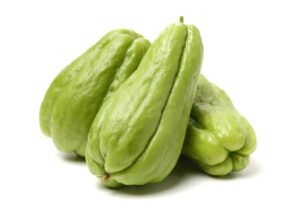 Cardiovascular Health
Cardiovascular Health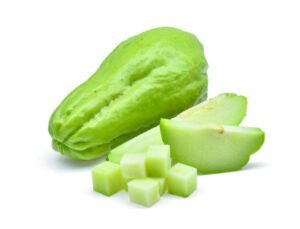 Bone Health
Bone Health Antioxidant and Anti-inflammatory Properties
Antioxidant and Anti-inflammatory Properties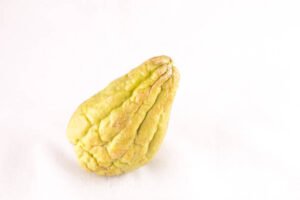 Diabetes Management
Diabetes Management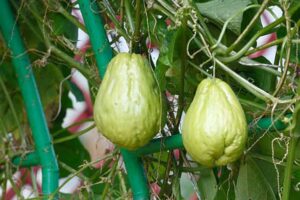 Skin Health
Skin Health